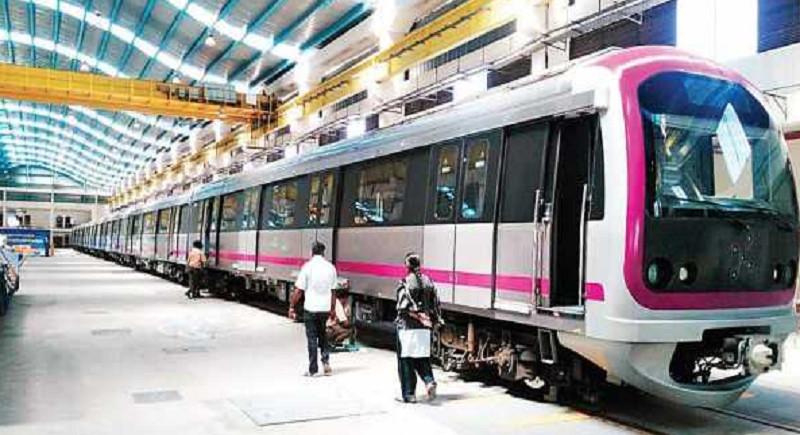A new boost to urban transport system as Metro network expands
New Delhi, March 23: The Ministry of housing and urban affairs has turned its attention to improving last-mile connectivity, one of the objectives articulated in the 2017 national metro policy. According to the Urban Ministry, over 326 km of metro lines have been made operational in the last five years and approximately 373 km are in the pipeline.
As per data studied, The Union government has already drafted a last-mile connectivity plan for 10 metros in cities such as Delhi, Bangalore and Kochi.
To this end, the ministry has started focusing on feeder bus services, electric rickshaws, smart cycles (that can be rented out), electric scooter services, and partnerships with cab aggregators. According to the national metro policy, the objective is to ensure that the lowest cost mass transit mode is selected for public transport.
It adds that towards this, states must make the metro self-sustaining, enhance other kinds of mass rapid transport systems, such as monorails or buses, and provide last mile connectivity, between the metro station and the commuters’ destinations.
“We have already drafted a last-mile connectivity plan across all operational metros; the aim is to provide a safe and economical ecosystem for daily commuting,” Union minister of housing and urban affairs Hardeep Puri said in an interview.
“Every proposal for metro rail should necessarily include proposals for feeder systems that help to enlarge the catchment area of each metro station at least to 5 km. Last-mile connectivity through pedestrian pathways, Non-Motorised Transport (NMT) infrastructure, and induction of facilities for paratransit modes will be essential requirements for availing any central assistance for the proposed metro rail projects,” the policy noted.
Around 329 feeder bus services have been made operational by the Centre already.
This includes an ambitious plan for Delhi and the National Capital Region, served by Delhi Metro Rail Corporation (DMRC). “Last mile connectivity is very important especially in cities such as Delhi because of its circular structure. Another very important reason for having connectivity is safety especially for women,” said KT Ravindran, professor and head of urban design at the School of Planning and Architecture of New Delhi.
As per policy, In view of inadequate availability and even absence of last mile connectivity at present, the new policy seeks to ensure it focuses on a catchment area of five kms. on either side of metro stations requiring States to commit in project reports to provide necessary last mile connectivity through feeder services, Non-Motorised Transport infrastructure like walking and cycling pathways and introduction of para-transport facilities. States, proposing new metro projects will be required to indicate in project report the proposals and investments that would be made for such services.